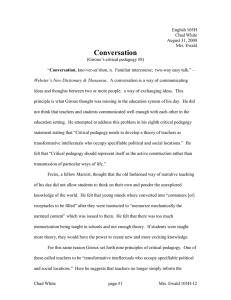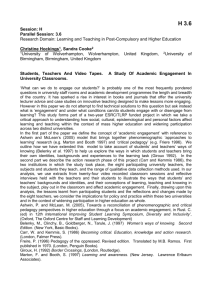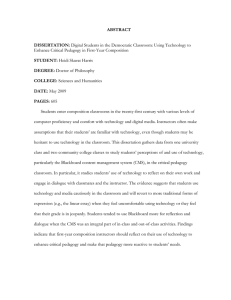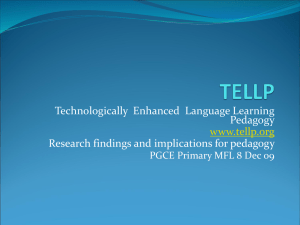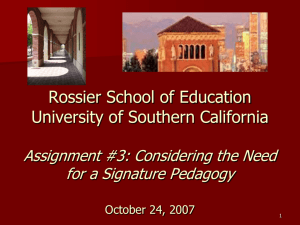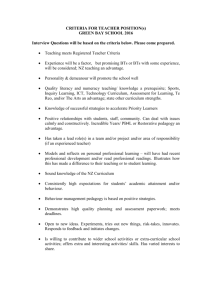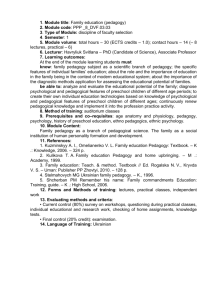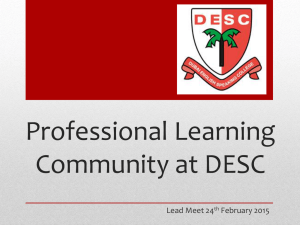GIROUX AND CRITICAL PEDAGOGY
advertisement
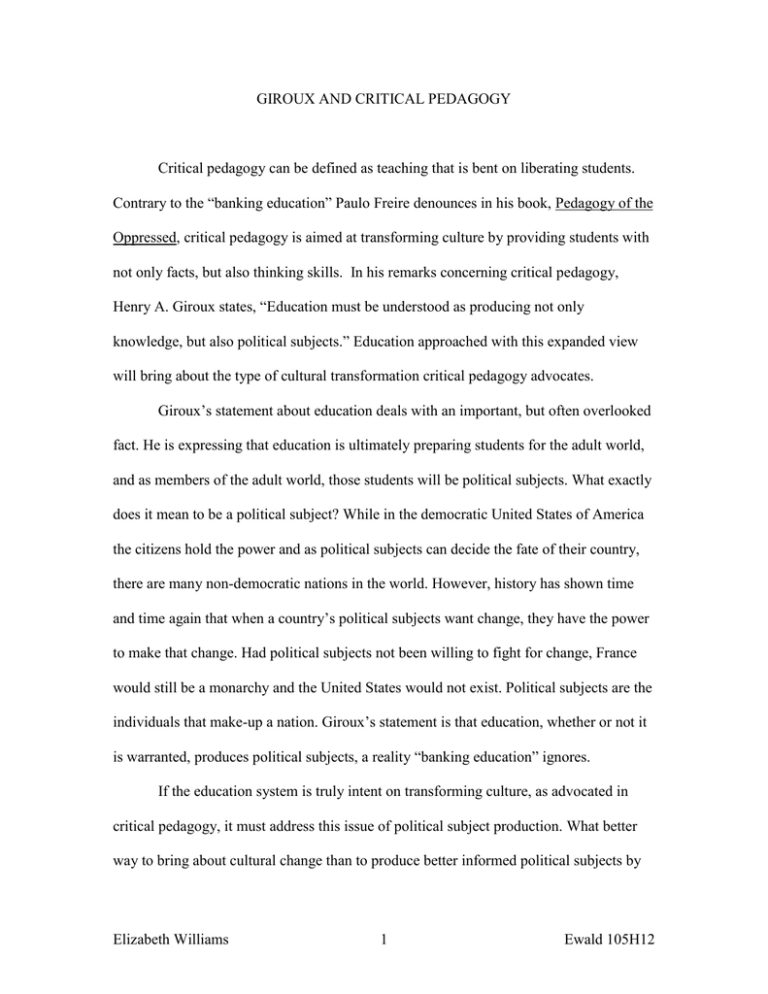
GIROUX AND CRITICAL PEDAGOGY Critical pedagogy can be defined as teaching that is bent on liberating students. Contrary to the “banking education” Paulo Freire denounces in his book, Pedagogy of the Oppressed, critical pedagogy is aimed at transforming culture by providing students with not only facts, but also thinking skills. In his remarks concerning critical pedagogy, Henry A. Giroux states, “Education must be understood as producing not only knowledge, but also political subjects.” Education approached with this expanded view will bring about the type of cultural transformation critical pedagogy advocates. Giroux’s statement about education deals with an important, but often overlooked fact. He is expressing that education is ultimately preparing students for the adult world, and as members of the adult world, those students will be political subjects. What exactly does it mean to be a political subject? While in the democratic United States of America the citizens hold the power and as political subjects can decide the fate of their country, there are many non-democratic nations in the world. However, history has shown time and time again that when a country’s political subjects want change, they have the power to make that change. Had political subjects not been willing to fight for change, France would still be a monarchy and the United States would not exist. Political subjects are the individuals that make-up a nation. Giroux’s statement is that education, whether or not it is warranted, produces political subjects, a reality “banking education” ignores. If the education system is truly intent on transforming culture, as advocated in critical pedagogy, it must address this issue of political subject production. What better way to bring about cultural change than to produce better informed political subjects by Elizabeth Williams 1 Ewald 105H12 equipping students with the thinking skills needed to analyze political issues? How many lives would have been saved during the Nazi regime in Germany had more of the German political subjects been equipped to critically examine their government’s activities? If more of Hitler’s people had been able to ascertain that the Third Reich was feeding them blatant lies, his reign may have been much shorter, if he had come to power at all. Giroux’s education statement relates to critical pedagogy in that, by addressing the fact that education produces political subjects, it rationally follows that these political subjects should be equipped with thinking skills in order to bring about the cultural change that critical pedagogy champions. How would an education aimed at producing well equipped political subjects be applied to a specific classroom? Consider a huge Psychology 101 lecture filled with college freshman. As described in the last paragraph, critical pedagogy intent on producing political subjects must give students the skills needed to think for themselves. In order to achieve this goal, the professor must shift his or her curriculum away from the memorization of experiment dates and names of researchers. Instead, the focus must be put on the skills of understanding schools of thought and interpreting psychological reports. Such a change of course content may require more work from the instructor. While fact memorization can be easily tested with a multiple-choice exam, a test of true interpretational and analytical skills generally requires essay type tests or class projects. The extra work the professor puts in correcting those essays or projects, however, will pay off in the end. Students coming out of the class will be equipped to understand the reasoning behind other peoples’ ideas and to interpret reports of new discoveries. These skills can then be applied to the interpretation of political views and new public policy Elizabeth Williams 2 Ewald 105H12 proposals. Students with these skills will be better informed, and therefore, more ready to make important political decisions than students only required to regurgitate dates and names without any real meaning. This difference in classroom results shows that Giroux’s principle, applied to critical pedagogy, can be very effectively used in a learning environment. It is evident that, as Giroux explains, education needs to be understood as producing political subjects in addition to knowledgeable people. This realization relates directly to the theory of critical pedagogy; by giving students the thinking skills critical pedagogy advocates, better political subjects will be produced, ultimately bringing about cultural change. As demonstrated, this new type of education, focused not only on knowledge but also on the development of political subjects, can be effectively incorporated into the classroom. Only one question remains. How much is being done to put it into universal practice? Elizabeth Williams 3 Ewald 105H12
